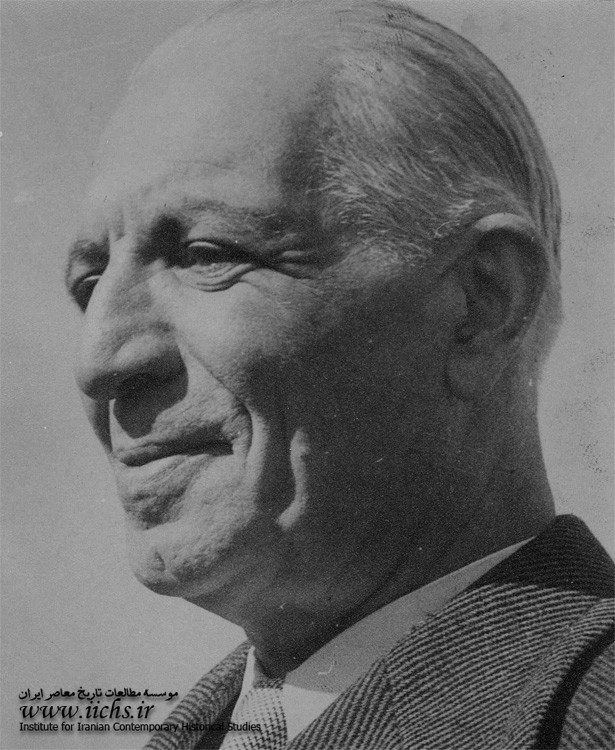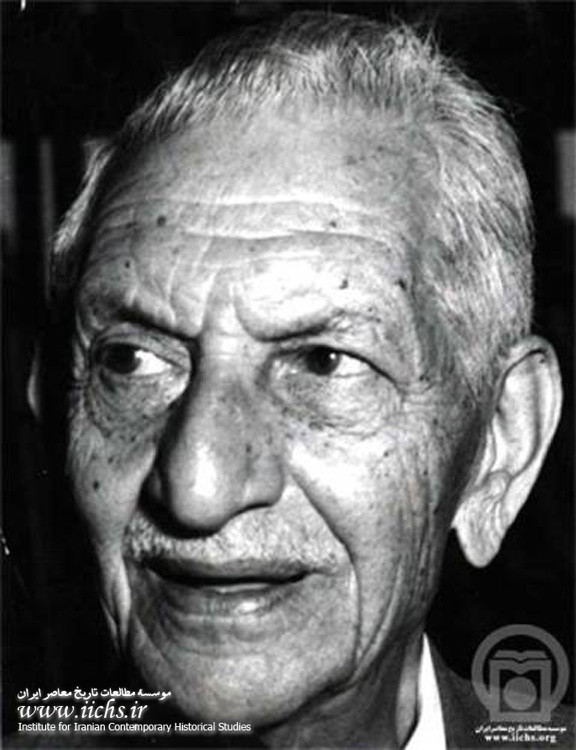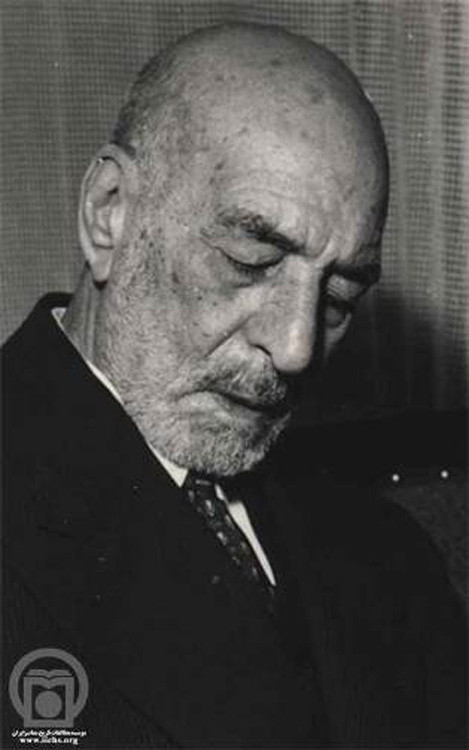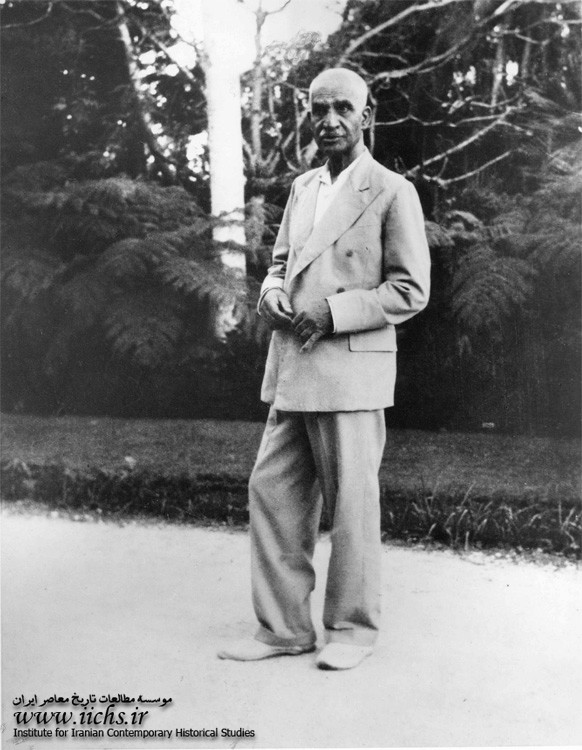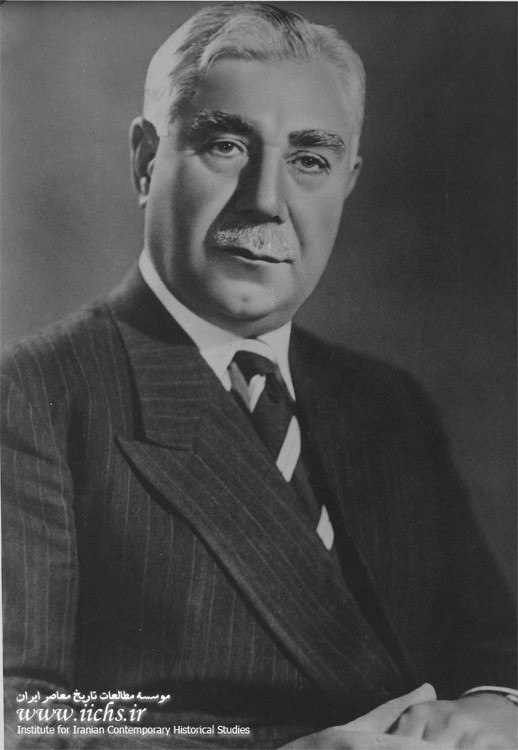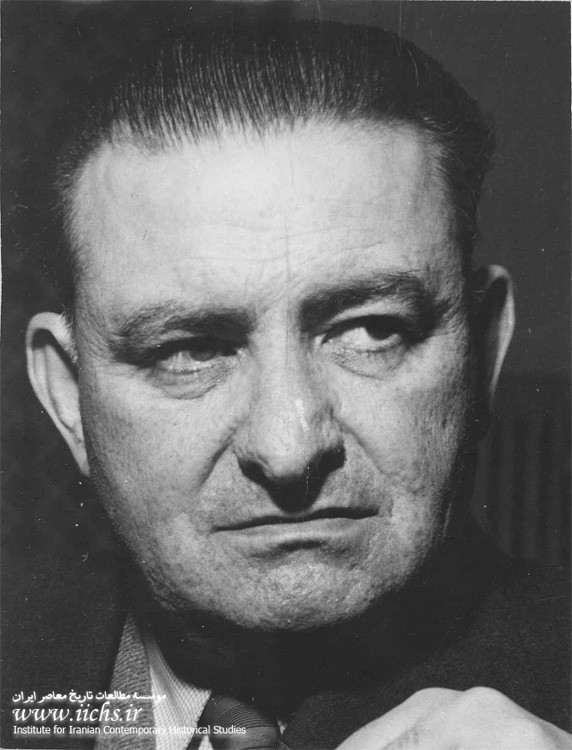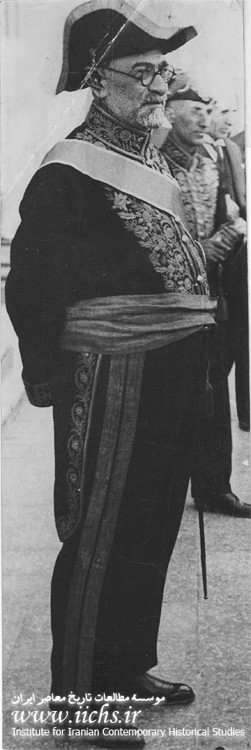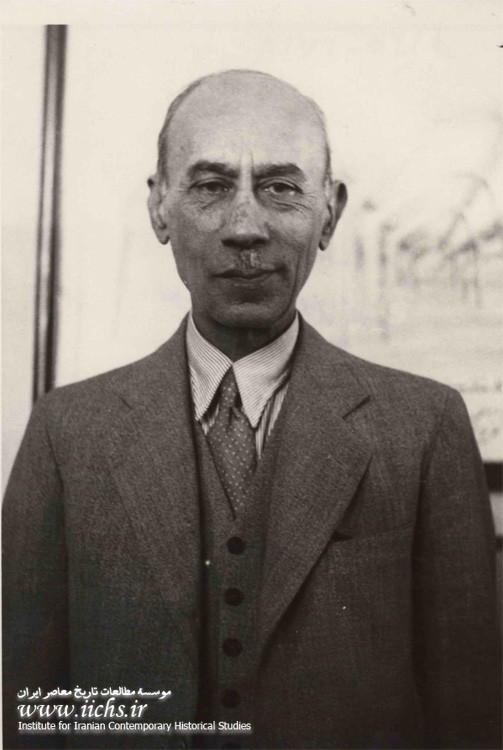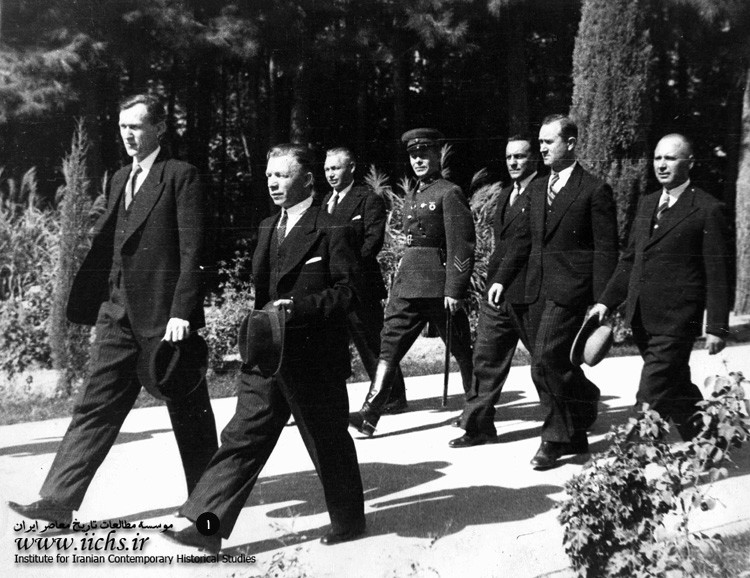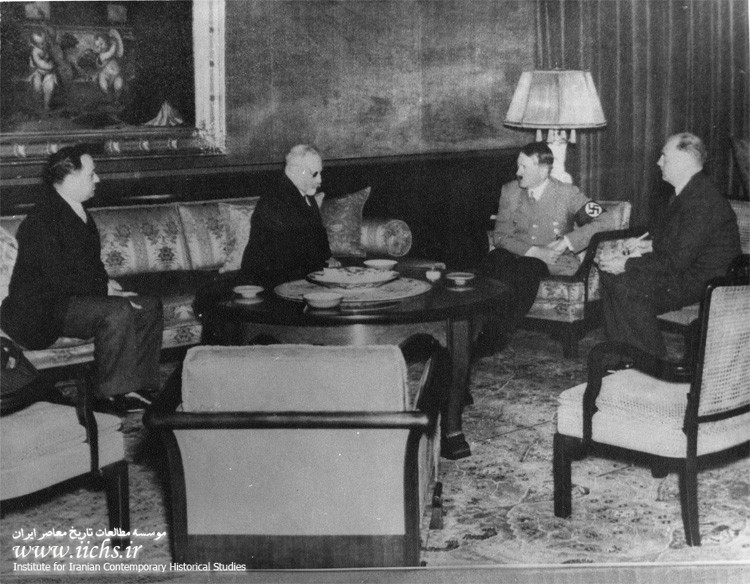At the Dawn of the twenty-second day of June 1941, the German Army opened its heavy fire to Russian plains alongside a front extending from Baltics to the Black sea. The German attack to the Soviet Union turned Iran to a link between England and Russia. The Iranian government was in a delicate situation; it tried to maintain the policy of neutrality, which it had taken with the start of World War II.
The joint note of the British and the Soviets to Iran on the deportation of German nationals from Iran had somehow a semi-official ultimatum mode, with the aim that if Iran refused to do this or if it did not reply, a good pretext would had been provided for the Allies to occupy Iran and carry out their plans.
Finally, at the dawn of the third day of September 1941, the political representatives of the Soviet and British governments in Tehran went to Prime Minister Ali Mansour’s house, and each of them submitted its note to him to inform him of the occupation of Iran by the Allied forces. While the political representatives of these countries were negotiating with the Prime Minister at his, their forces began to trespass the borders of Iran. Soviet Air Force bombed the cities of Azerbaijan and the army invaded Iran via Jolfa towards Tabriz. British forces in Khuzestan attacked the ports of Shahpur and Khorramshahr, and surprised Iranian warships. British air force, bombing Ahvaz had another column of British forces from Qasr-e Shirin, to move toward Kermanshah.
With the British and Russian forces invading the south and north of the country, Reza Shah called his army to fight, but only after scattered resistance for a few days, the army had shattered within three days. The Soviet and the British forces occupied the country, and the commandants of Iranian armies fled with the same veils they had forbidden. After three days, the Iranian government announced its decision to leave the resistance to the ambassadors of the occupying countries and instead asked them to stop the military operations and their advance.
The eighth day of August 1941, Forughi’s cabinet announced military rule in Tehran and General Amir Ahmadi was appointed Tehran military governor. When in September 15, the Russian and British forces entered Tehran, Reza Shah resigned promptly and headed to Bandar Abbas.
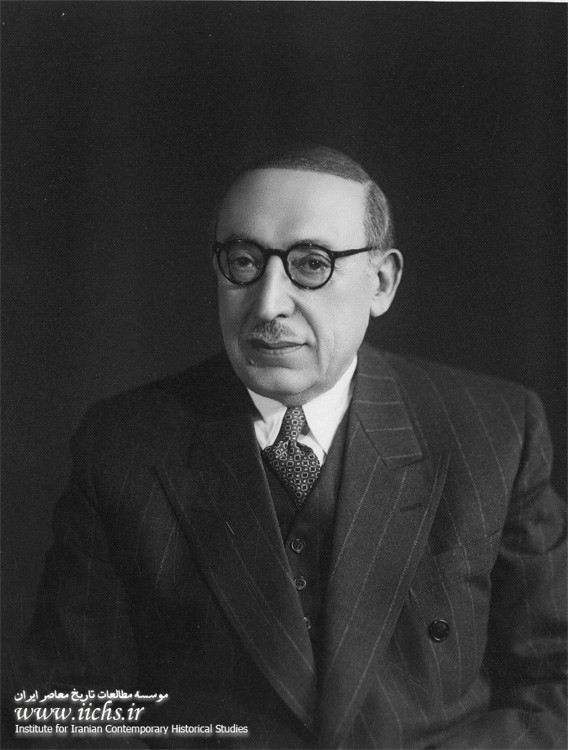
occupation of Iran
[AA 1358-1]
Ahmad Qavam (Qavamossaltaneh) one of Iranian prime ministers during the occupation of Iran by the Allies (1942, and 1945-1946)
Ahmad Qavam (Qavamossaltaneh) one of Iranian prime ministers during the occupation of Iran by the Allies (1942, and 1945-1946)
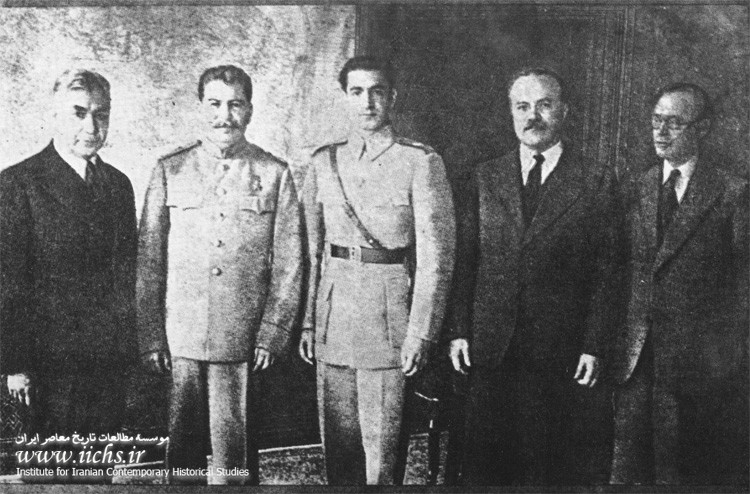
occupation of Iran
[P880-121]
Joseph Stalin, Soviet Prime Minister on the sidelines of the Allied countries’ heads conference in Tehran, during a meeting with Mohammad Reza Pahlavi (09/09/1322) Right: Maximov (Soviet ambassador in Iran), Viacheslav Michailovich Molotov (Soviet Foreign Minister), Mohammad Reza Pahlavi, Joseph Stalin and Muhammad Saaed Maraghei (Foreign minister of Iran)
Joseph Stalin, Soviet Prime Minister on the sidelines of the Allied countries’ heads conference in Tehran, during a meeting with Mohammad Reza Pahlavi (09/09/1322) Right: Maximov (Soviet ambassador in Iran), Viacheslav Michailovich Molotov (Soviet Foreign Minister), Mohammad Reza Pahlavi, Joseph Stalin and Muhammad Saaed Maraghei (Foreign minister of Iran)
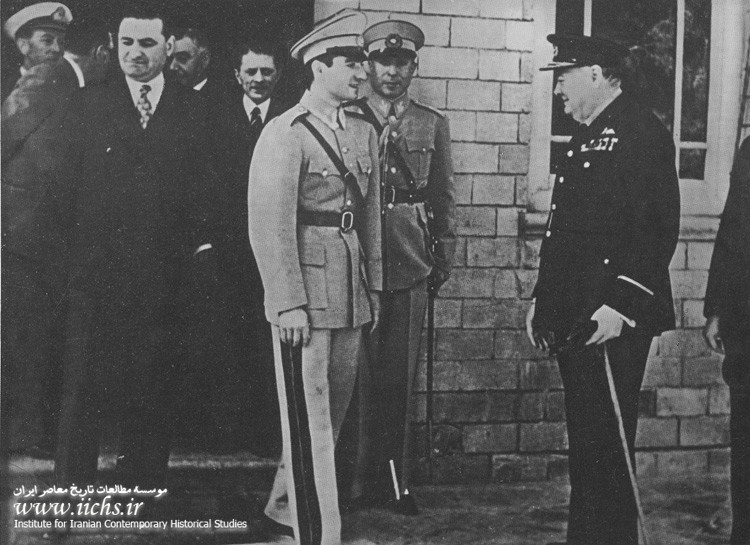
occupation of Iran
[P927-121]
Mohammad Reza Pahlavi meeting with British Prime Minister Winston Churchill, in the British embassy in Tehran (29 Nov. 1943) Left to right: Winston Churchill, Esmail. Shafai, Mohammad Reza Pahlavi, Hussein Ala, Mohammed Saaed Maraghei (Foreign Minister), and Ali Soheil (Prime Minister)
Mohammad Reza Pahlavi meeting with British Prime Minister Winston Churchill, in the British embassy in Tehran (29 Nov. 1943) Left to right: Winston Churchill, Esmail. Shafai, Mohammad Reza Pahlavi, Hussein Ala, Mohammed Saaed Maraghei (Foreign Minister), and Ali Soheil (Prime Minister)
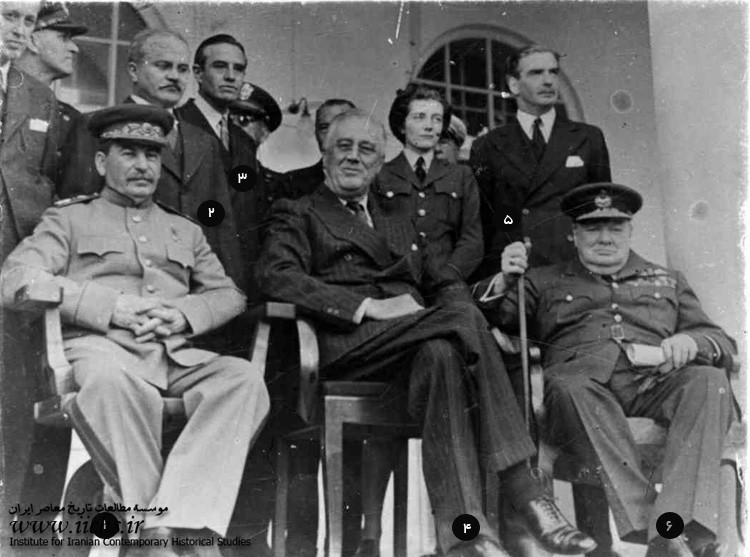
occupation of Iran
The heads of allied Countries at "Tehran Conference" held in the Soviet Embassy (27 Nov. 1943) 1. Joseph Stalin (Soviet Prime Minister) 2.. Viacheslav Michailovich Molotov (Soviet Foreign Minister) 3. Aril Harriman (U.S. Ambassador to Moscow) 4. Franklin Roosevelt (U.S. President) 5. Anthony Eden (Secretary of State) 6. Winston Churchill (British Prime Minister)
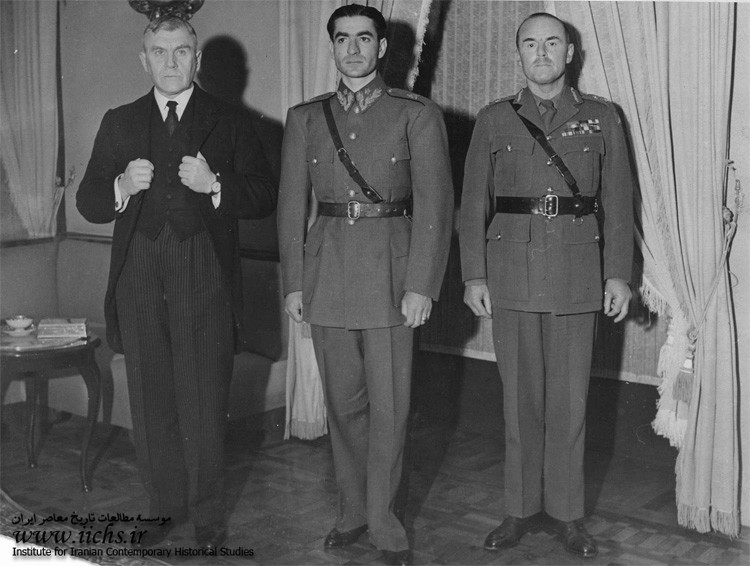
occupation of Iran
] AA. 976-11]
Reader William Bullard, the British plenipotentiary minister in Iran, Mohammad Reza Pahlavi and the British General Vivel, the commander of Allied forces in Iran
Reader William Bullard, the British plenipotentiary minister in Iran, Mohammad Reza Pahlavi and the British General Vivel, the commander of Allied forces in Iran
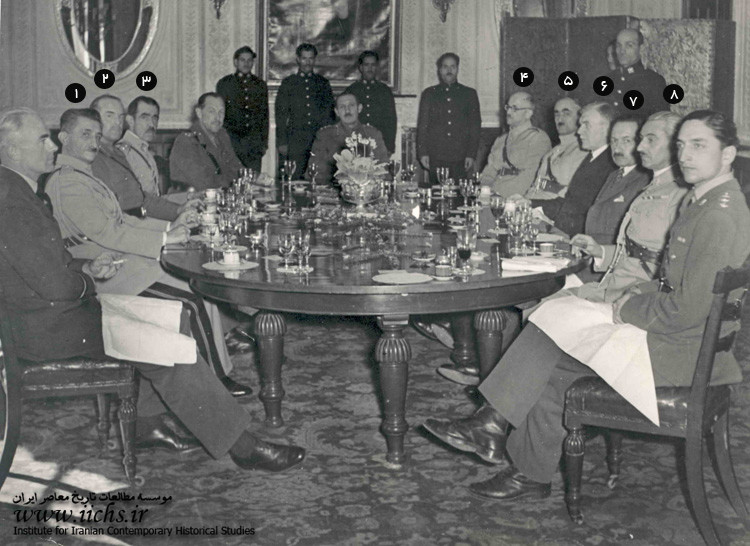
occupation of Iran
[AA548-1]
Iranian army generals in talks with Reader William Bullard, the British plenipotentiary minister, and several army commanders of the Allied forces
Iranian army generals in talks with Reader William Bullard, the British plenipotentiary minister, and several army commanders of the Allied forces
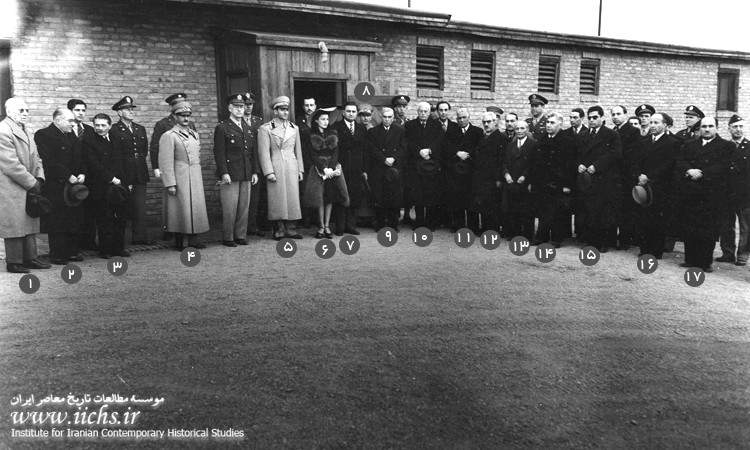
occupation of Iran
[AA. 816-11]
Mohammad Reza Pahlavi and his wife Fuzieh with a group of country officials to visit the headquarters of British military forces in Tehran, 1. Gholamreza Nurzad 2. Eissa Sadiq, 3. Hussein Ala, 4. Morteza Yazdanpanah, 5. Mohammad Reza Pahlavi, 6. Fuzieh , 7. Ali Soheil (Prime Minister) 8th. HajjAli Razmara, 9. AbolHassan Ardalan (Ezzolmamalek), 10. Ali Asghar Moaddab Nafissi, 11. Qasim Qani 12. Hamid Sayyah 13. Mostafa Adl (Mansurossaltaneh) 14. Mohammad Saed Maraghei 15. Abdolhossein Hazhir 16. Mohsen Qaragozlu 17. Yuseph Shokrayi
Mohammad Reza Pahlavi and his wife Fuzieh with a group of country officials to visit the headquarters of British military forces in Tehran, 1. Gholamreza Nurzad 2. Eissa Sadiq, 3. Hussein Ala, 4. Morteza Yazdanpanah, 5. Mohammad Reza Pahlavi, 6. Fuzieh , 7. Ali Soheil (Prime Minister) 8th. HajjAli Razmara, 9. AbolHassan Ardalan (Ezzolmamalek), 10. Ali Asghar Moaddab Nafissi, 11. Qasim Qani 12. Hamid Sayyah 13. Mostafa Adl (Mansurossaltaneh) 14. Mohammad Saed Maraghei 15. Abdolhossein Hazhir 16. Mohsen Qaragozlu 17. Yuseph Shokrayi
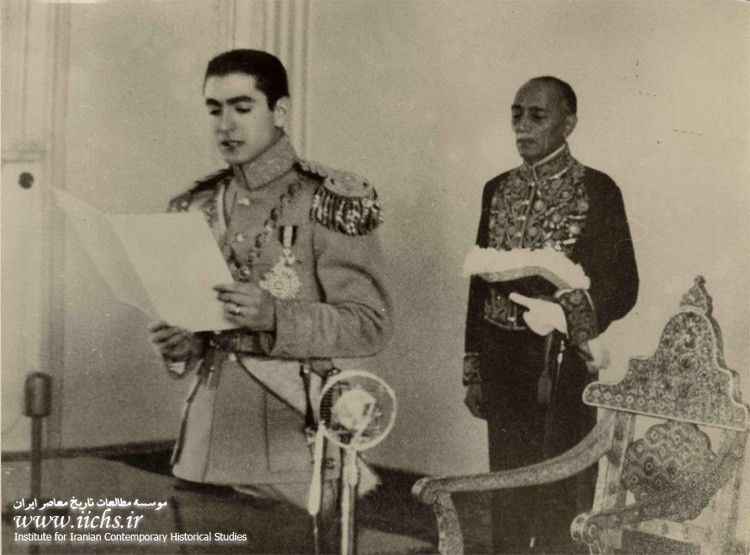
occupation of Iran
[GH 681-112]
Mohammad Reza Pahlavi taking royal oath in the National Assembly; Mohammad Ali Farzin in seen in the picture (17 Sept. 1941)
Mohammad Reza Pahlavi taking royal oath in the National Assembly; Mohammad Ali Farzin in seen in the picture (17 Sept. 1941)
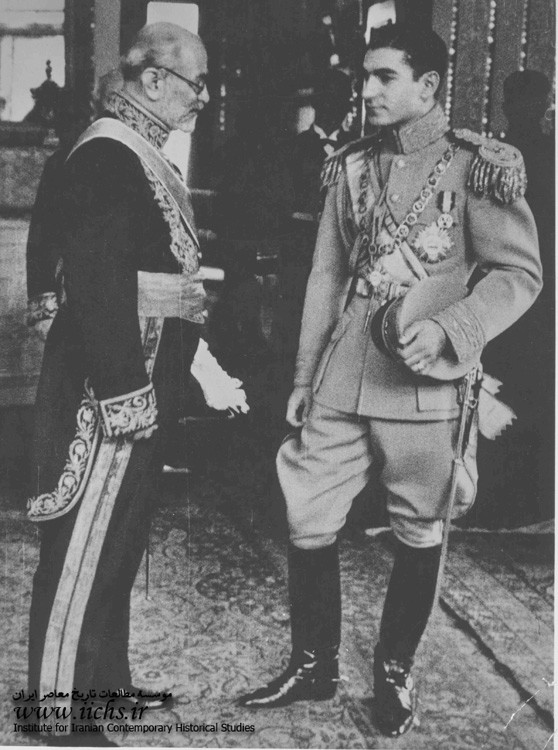
occupation of Iran
[AA 2775-1]
Mohammad Reza Pahlavi's on the day of taking oath in the National Consultative Assembly, together with Prime Minister Mohammad Ali Foroughi Zokaolmolk (17 Sept. 1941)
Mohammad Reza Pahlavi's on the day of taking oath in the National Consultative Assembly, together with Prime Minister Mohammad Ali Foroughi Zokaolmolk (17 Sept. 1941)
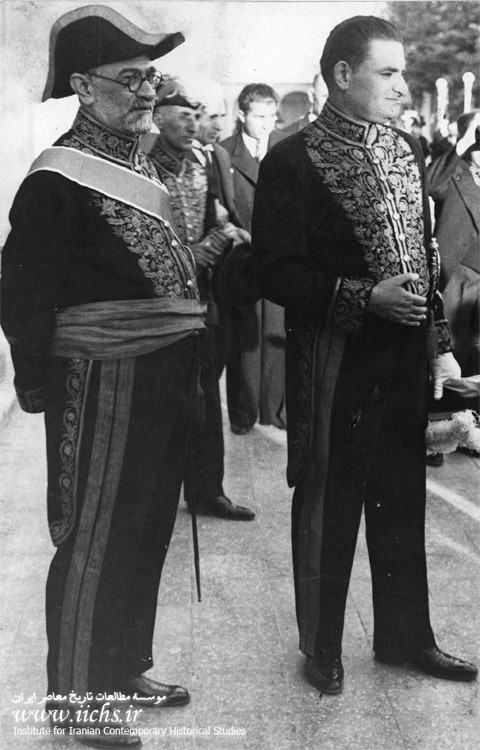
occupation of Iran
[AA3131-4]
Mohammad Ali Foroughi, Prime Minister and Foreign Minister Ali Soheil in the inauguration day of the new king in the National Assembly
Mohammad Ali Foroughi, Prime Minister and Foreign Minister Ali Soheil in the inauguration day of the new king in the National Assembly
iichs.ir/vdch.mnxt23n-v10d2.html
